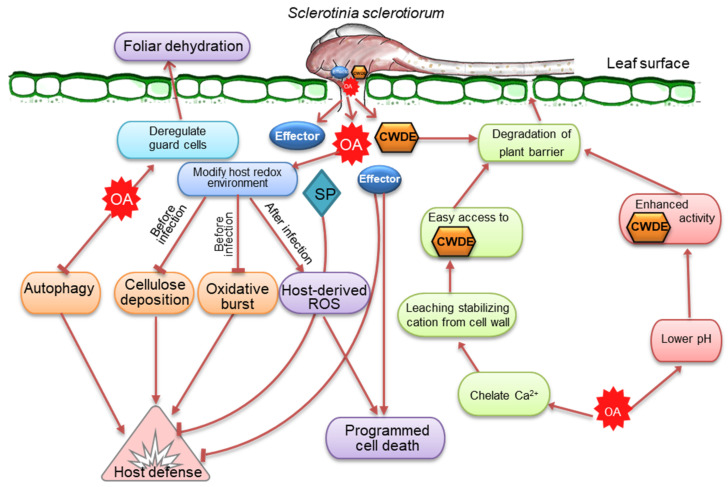Figure 4.
The frontline weapons or virulence factors of Sclerotinia sclerotiorum important for developing and regulating the infection process in plants. S. sclerotiorum releases oxalic acid (OA), which modulates reactive oxygen species (ROS) and the activity of cell wall-degrading enzymes (CWDEs) while dampening host defense responses and suppressing autophagy. At the early stage, OA suppresses plant defensive responses and modifies the host redox state by inhibiting callose deposition and host oxidative burst and establishing a reducing environment. At a later stage, OA-induced ROS causes apoptotic-like programmed cell death and disease. Because of its affinity for Ca2+, OA may degrade plant barriers by draining the stabilization of cations from the plant cell wall. OA accumulation also lowers the pH and activates CWDEs, which are necessary to destroy infection surfaces. Effectors and other secreted proteins (SP) have a similar role in cell death and host defensive responses.

